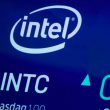GameStop, the video game and consumer electronics retailer, announced it will shut down its non-fungible token (NFT) marketplace by February 2nd. The company said the wind-down comes “due to the continuing regulatory uncertainty of the crypto space.”
The NFT platform, which debuted in July 2022, allowed users to buy, sell, and mint NFTs linked to video game themes and GameStop rewards. However, in a message on the marketplace website, GameStop informed users it will cease all transactions by early next month.
While existing NFT owners will retain control of their digital assets and can still trade them elsewhere, GameStop will remove the functionality to buy, sell, or mint new NFTs on its platform.
Also read: Dogecoin (DOGE) Mid-January Price Prediction
GameStop’s decision comes amidst slumping NFT market conditions
The move marks a strategic shift away from blockchain for GameStop, which originally envisioned NFTs and crypto as key parts of its turnaround strategy. Last year, the struggling retailer invested heavily in building an NFT team and market infrastructure in an effort to revive its fortunes.
However, the bottom has fallen out of the NFT market over the past few months. Monthly NFT trading volumes are down over 97% from their peak, evaporating customer demand. This lack of user traction, along with ongoing ambiguity over crypto regulations, likely forced GameStop’s hand.
Also read: Why Bitcoin is Dumping After Spot ETF Approval?
The U.S., in particular, has taken an uneven stance toward crypto oversight. While the SEC recently approved Bitcoin ETFs in a nod towards acceptance, legislation like the Infrastructure Bill created tax-reporting requirements that some industry leaders say stifle innovation.
GameStop’s abandoned NFT experiment underscores the precarious state of crypto as both an investment and business mechanism. Uncertain regulations, combined with free-falling asset values, are pushing many players toward the exits.





